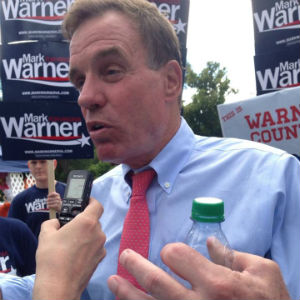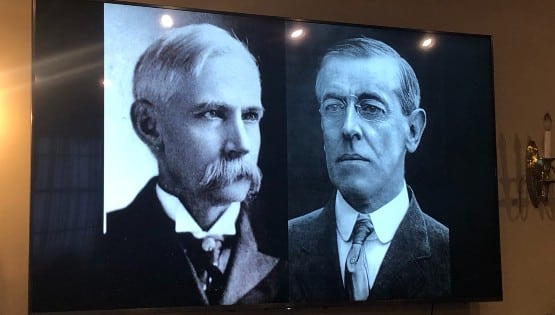
About 8 p.m. it started becoming clear that Warner might as well have been Rachel Maddow on Election Day 2014 as far as “real Virginia” was concerned.
Warner, in 2008, received 58 percent of the vote in the Sixth Congressional District, my corner of “real Virginia,” which has been represented in Congress for more than 20 years by conservative Republican Bob Goodlatte. In 2014, Warner won four of the 19 localities in the Sixth: Harrisonburg, Lexington, Roanoke and Salem, and by my unofficial, back-of-the-envelope math, necessitated by a change in reporting by the State Board of Elections this year, Warner received 39 percent in the Sixth this time around.
Which renders the post-election analyses about how Warner ended up in a close race because of reduced turnout in the Democratic strongholds in NoVa, Richmond and Hampton Roads just part of the story.
Diving further down into our namesake, Augusta County, traditionally one of the reddest localities in Virginia, which gave Republican Ed Gillespie 71 percent of the vote this year, Warner actually fell just short of a majority here in 2008, getting 46.5 percent of the county’s vote.
Looking at the raw numbers from cycle to cycle, Warner was a sliver shy of 15,000 votes in Augusta County in 2008; in 2014, 5,100. Gillespie received 14,008 in the 2014; the Republican nominee in 2008, Jim Gilmore, had 16,750.
A couple of things are clear from that snapshot, and then after that there is still a lot unclear. The clear first: Gillespie’s team did a great job getting their voters to the polls, pulling in about 90 percent of the Gilmore base from 2008, while the Warner side cratered out west, losing two-thirds of his voters in Augusta from 2008 to 2014.
That’s how you go in a congressional district that you won with 58 percent of the vote six years ago to getting under 40 percent. And it can’t be argued out this way, as it has been pointed out in the Northern Virginia districts where this phenomenon was also noticed, that, well, OK, 2008 was a presidential election, and, well, the Barack Obama team, pretty much.
The Obama operation is gold standard; strategists on both sides of the aisle will apply the lessons learned from that GOTV operation for decades. But specifically in Augusta County in 2008, Obama got 29 percent of the vote as Warner was at 46.5 percent; and Sixth District-wide, that trend remained consistent, with Obama also running 17 percent behind Warner, getting 41 percent of the vote in the Sixth in 2008.
So you can’t credit the Obama folks with how well Warner ran out west in 2008, and thus can’t fault the lack of organizational muscle and presidential-year energy on how poorly Warner fared out our way in 2014.
That ends the part of what we’re clear about. The unclear: what happened between 2008 and 2014 that made roughly 110,000 Warner voters in the Sixth from ’08 decide to skip the ’14 election entirely?
Gillespie, as in Augusta, kept about 80 percent of the Gilmore voter coalition in the Sixth from 2008 together for the 2014 midterm; Warner kept less than 40 percent of his voter base in the Sixth from the ’08 cycle to the ’14 cycle.
One possible explanation is what we’ve been hearing on the statewide level, that Warner actually suffered from heavy-favorite malaise, with swaths of voters assuming that he was such an inevitability that he was bound to lose votes from those who didn’t make voting a priority on Election Day, and that conversely the Gillespie backers, knowing that their guy needed every last vote to have any chance, made voting a priority.
No doubt that’s a real phenomenon not specific to this race, but it’s hard to imagine that factor being an issue for a significant portion of the 60 percent of voters in western Virginia who voted for Warner in 2008 and didn’t in 2014.

The most reasonable answer at this point is that Warner simply didn’t seal the deal with voters in the Sixth and the rest of “real Virginia” that his team assumed were in the fold.
As a result, we have this electoral map from the Virginia Public Access Project, which resembles a winning map for a Democratic statewide candidate in no way that can be considered healthy. Look at how bright red that map looks; maybe 10 percent of it has any shade of blue for balance.
This is a map for a Democratic statewide office candidate getting McGoverned, not Mark Friggin’ Warner, the Democrat with the magic touch.
– Column by Chris Graham










